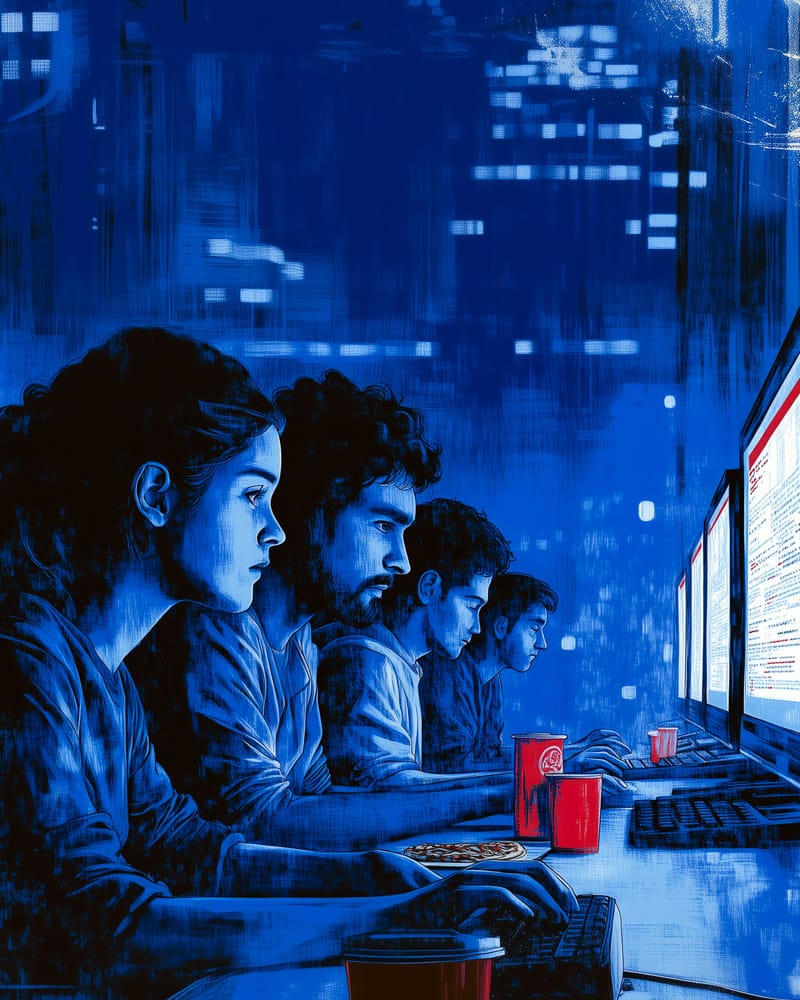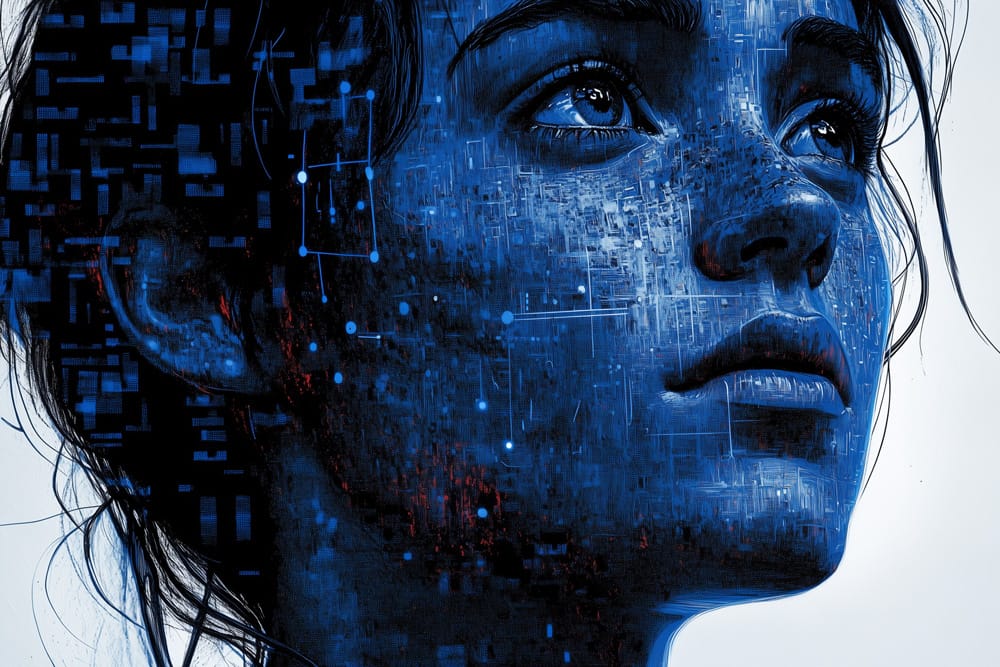The dawn of the Citizen Coders
Software creation is no longer confined to trained developers; it's open to everyone. This new era of "citizen coders" will democratize innovation and empower people from all walks of life to build their own digital tools.

It was the year 1999, and the Y2K was upon us. Yet, inside the concrete heart of Instituto Superior Técnico in Lisbon, time stood still. The terminal room, a fluorescent-lit cocoon, hummed with the persistent whir of ancient technology. The world outside could have been falling apart, and we wouldn’t have noticed. For my companions and me, it was just us against the code. Three days and two nights without sleep etched shadows under our eyes. Our fingers danced over the keyboards, each clack a prayer to the gods of programming.
Pizza boxes were piled high beside terminals, a precarious tower that stood witness to our vigil. Our communication consisted of half-sentences and techno-jargon, with the occasional jubilant cry of “Yes!” as we squashed a particularly stubborn bug. It was a world absent of smartphones, where the glow of CRT monitors created our own kind of reality, bounded by lines of code and shared exhaustion.
There were no laptops to bring home, no Wi-Fi to connect us beyond these walls. Social media was a distant reality, yet to swallow our lives. And then came the dawn, and with it, the realization that I didn’t want to weave code for a living. It was too grueling, too all-consuming, and I couldn’t see the purpose.
Fast forward 25 years, and the landscape has transformed in ways I could never have imagined. I, who once groaned under the labyrinthine complexity of code, have become a Citizen Coder. In this new era, empowered by AI, I can now create software by articulating my needs in plain English. Testing the capabilities of AI-assisted development, I found magic unfolding - intuitive, immediate, and exhilarating.
An industry about to be disrupted
Today, we find ourselves in a moment where artificial intelligence has already begun to democratize software development. Soon, the power to create bespoke digital gadgets rests not just in the hands of experienced programmers or trained engineers like myself, but with artists, tutors, and entrepreneurs. Picture agriculture experts developing specialized apps to monitor crop health and schoolteachers designing interactive educational tools with no need to learn a single line of code. This is no longer a distant dream, but an imminent reality.
For the software industry, this shift entails a dramatic redefinition. Traditional developers will find themselves in a new role - not as the sole creators of software but as guides and facilitators of a broader creative process. This transition may provoke anxiety. Will trained developers become obsolete, replaced by AI-driven code generation platforms? Not completely.
Developers will continue to play a crucial part, but in a transformed capacity. Their deep knowledge will be leveraged not just to build, but to refine, optimize, and maintain AI-generated software. The need for oversight and quality assurance remains high; AI may generate code, but it is humans who ensure it aligns with the broader purpose, ethical standards, and security protocols.

The rise of Citizen Coders does not eliminate the need for complex software development - a field where sophisticated systems and innovative technology play pivotal roles that AI alone won’t be able to handle soon. Instead, it allows for a redistribution of creative resources, empowering those who have the ideas but not the coding skills to take part in the creation process. By dismantling the barriers to software development, we liberate innovation from the confines of traditional tech hubs and institutions. We democratize the act of creation itself.
The digital creative renaissance
On the societal level, the implications are extraordinary. By lowering the barrier to software creation, we enable a more inclusive technological landscape. In the same way that literacy transformed societies, the ability for anyone to produce their own software can foster unprecedented economic and social development. Remote communities will be able to harness digital tools to solve local problems, and niche industries can develop specialized tools tailored to unique needs.
This shift also promises to spawn innovation at an individual level. In the same way that the internet has made it easier for individuals to start businesses or reach stardom status, AI-driven software creation tools empower personal creative projects, hobbyists, and small enterprises. The line between consumer and creator will continue to blur, leading to a more diverse array of digital content and applications available.
For me, this is personal. I first encountered the magical world of computing long before IST. It was 1984, when me and a group of 8-year-olds gathered in front of a Mac, marveling at the little turtle on the screen as it moved with the Logo language. Simple commands, like “forward” and “turn,” sparked an excitement inside us we couldn’t yet articulate - a feeling of unlimited potential. That thrill only grew when I began crafting my own games, originally on a Spectrum 48k and later on my all-time favorite: the mighty Commodore Amiga.

Now, on my late forties, I am once again captivated by the thrill of creating algorithms. Sitting in front of a modern laptop, I guide the AI to generate Python code with relative ease. A 49-inch screen, with its vast, immersive canvas, stretches out before me, and beyond my window, the ocean crashes against the shore. It’s a far cry from the terminal room with Marina, Daniela, Luís, and Rui. Only now the door is wide open, and the tools at our fingertips are guided by artificial intelligence, inviting the world to join us.
The digital dawn has arrived, and the horizon is brighter than ever.
